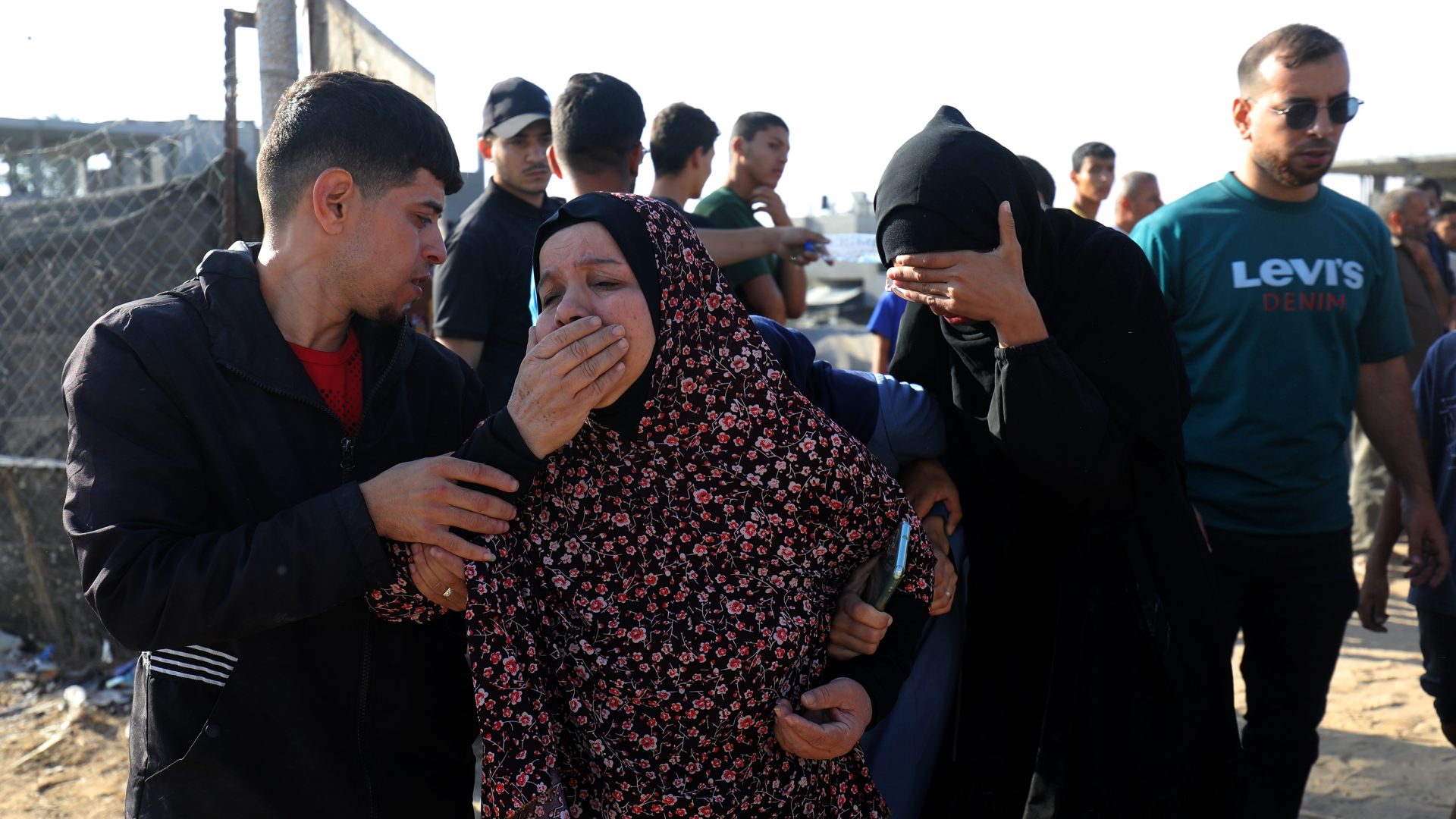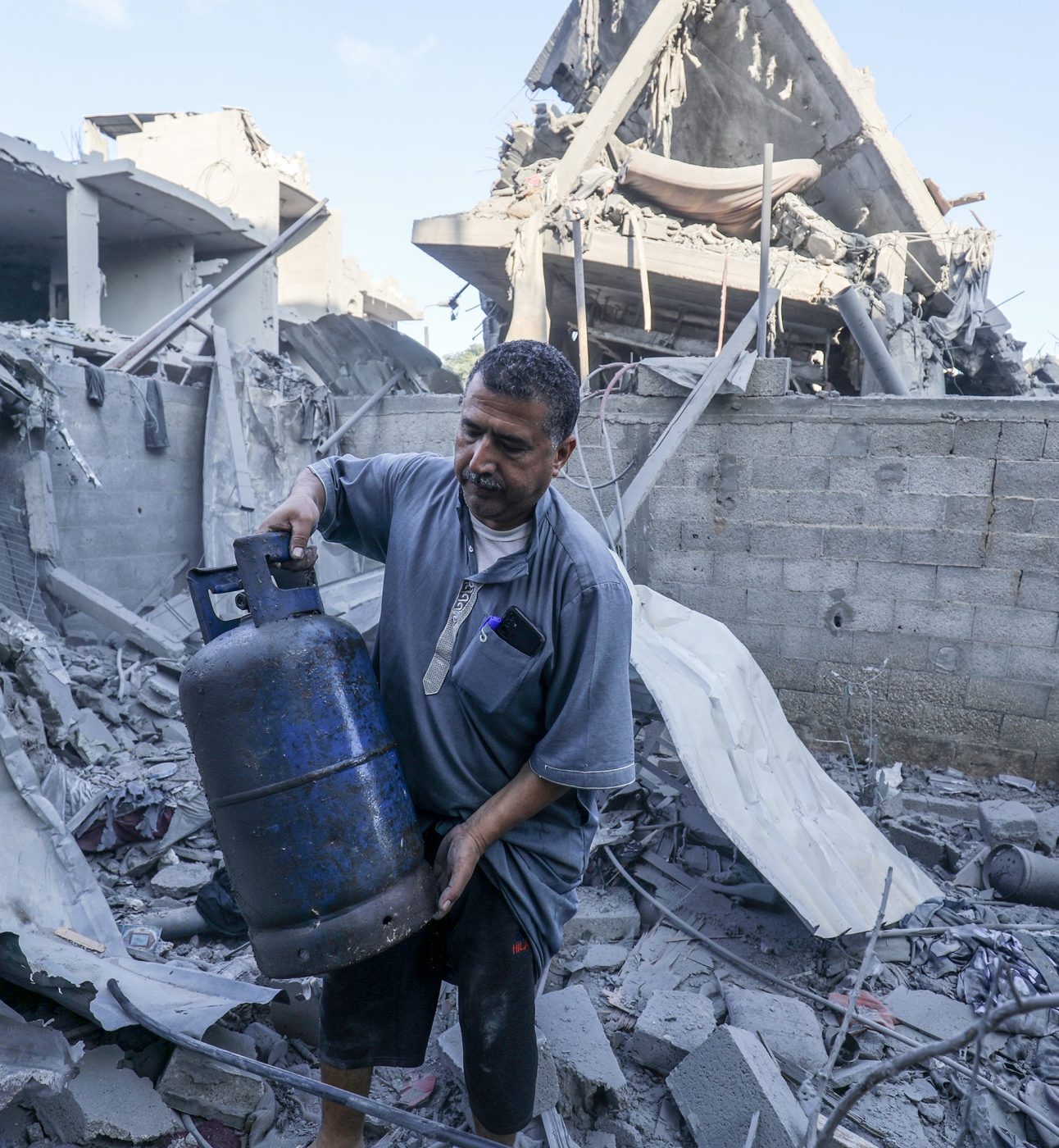Juzoor has taken charge of 50 UNRWA and government school shelters across the Gaza Strip, offering support to more than 200,000 people of all ages who have been displaced. They have brought together teams of health professionals from among the displaced and established health committees in every shelter equipped with medical supplies and equipment. These committees are providing urgent medical services and support to children, pregnant women, older people, and those with non-communicable diseases.
Since the outbreak of hostilities, Juzoor has distributed more than 10,000 hygiene kits to families in shelters, along with other necessities, including more than 350,000 bottles of drinking water. They have recruited and mobilised teams of professionals to operate and offer psychosocial support services to children traumatised by the bombings, families who’ve lost their homes or loved ones, and to older people who are battling feelings of isolation and helplessness.
With over half of Gaza’s population currently lacking access to healthcare services, Juzoor has established an emergency helpline (1800-500-600) offering primary healthcare and psychosocial support to civilians with injuries, individuals with pre-existing conditions, those experiencing mental distress, and pregnant or birthing mothers. Their staff has mobilised volunteers, particularly midwives equipped with kits for home deliveries and routine check-ups, ensuring the well-being of both mothers and their newborns.
They have also published essential first aid information on social media platforms, delivering tips and protocols on addressing burns, bleeding, and breastfeeding, along with valuable information on psychosocial support and maternity. These efforts have reached and benefited more than 150,000 people in Gaza.
Juzoor has provided cash vouchers to internally displaced persons (IDPs) staying in shelters, with a specific emphasis on older people and those requiring assistance beyond the scope of their on-the-ground team. These cash vouchers are aimed at directly meeting the urgent and diverse needs of individuals who have lost their homes and all their personal belongings.
But this work has not been without its challenges. The initial focus on shelters in the north now reaches across the entire Gaza Strip, responding to the far-reaching and rapidly deteriorating situation. The health committees are overloaded, and medical resources are depleting throughout the strip. The scale of the situation and the increasing demands surpass their current capacities. Numerous shelters, particularly in northern Gaza, where tens of thousands of displaced civilians reside, remain without adequate assistance.
As the world grapples with the continuous atrocities unfolding in Gaza, Juzoor stands as a testament to the power of local initiatives in making a tangible difference. In the face of hardship, their commitment to humanity serves as a source of inspiration for all of us.
Juzoor for Health and Social Development is a Palestinian non-governmental organization working at the national level, dedicated to improving the health and well-being of Palestinian families and promoting health as a basic human right.
Find out more about Juzoor and their work in response to the conflict in Gaza: https://www.juzoor.org/ and read their full response report here.


